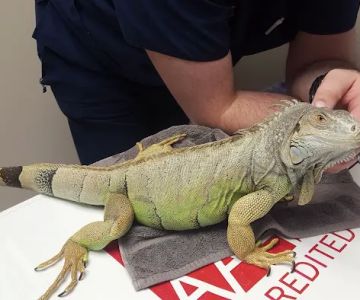How Hard Is It to Get Into Veterinary School? Exploring the Challenges and Opportunities
- 1 - Understanding Veterinary School Admissions
- 2 - The Challenges of Getting Into Veterinary School
- 3 - Preparing for Veterinary School: Tips for Success
- 4 - Veterinary School Acceptance Rates: What to Expect
- 5 - Real-World Experience and How It Affects Your Application
1. Understanding Veterinary School Admissions
If you're considering a career in veterinary medicine, you're likely wondering: "Is veterinary school hard to get into?" The answer is yes, veterinary school can be quite challenging to get into. The process is competitive, with many schools requiring high academic standards, strong extracurricular involvement, and extensive veterinary experience. Veterinary schools typically look for candidates who are not only academically qualified but also passionate about animal care and have hands-on experience in the field. For example, when I was applying to vet school, I found that having volunteer work at animal shelters and internships with veterinarians played a crucial role in strengthening my application.
1.1 - Academic Requirements
Most veterinary schools require a strong foundation in science, especially biology, chemistry, and physics. Additionally, many schools have a high GPA requirement—often above 3.5—along with high standardized test scores like the GRE or MCAT. It's essential to have excellent grades in your undergraduate courses to show that you're capable of handling the rigorous curriculum of veterinary school. I remember spending hours studying for the GRE, knowing that my performance would have a direct impact on my application. Academic excellence is critical, but it’s just one piece of the puzzle.
1.2 - Experience in Veterinary Medicine
Another key component of the admissions process is having direct experience with animals and veterinary practices. This might include internships, volunteer work at animal clinics, or even working with wildlife organizations. When I applied, I made sure to get as much hands-on experience as possible, whether it was shadowing a veterinarian or helping out at a local animal shelter. This experience not only helped me build a stronger application but also gave me a deeper understanding of the profession, which is essential when pursuing a career in veterinary medicine.
2. The Challenges of Getting Into Veterinary School
Now that we understand what goes into a veterinary school application, let's explore some of the biggest challenges applicants face when trying to get into vet school. One of the most significant hurdles is the sheer number of applicants versus available spots. With thousands of applicants each year, the competition is fierce, and only a select few will be accepted. As a result, applicants often face the pressure of making their application stand out. During my application process, I felt that the challenge wasn’t just getting good grades but showing that I was genuinely passionate about animals and the veterinary field. It took a lot of time, effort, and perseverance to make my application shine.
2.1 - High Competition and Limited Spots
Veterinary schools are limited in the number of spots they offer each year, and many applicants are highly qualified. This makes the admissions process extremely competitive. For example, some schools have acceptance rates of just 10-15%, meaning the odds of getting in are relatively low. It's not enough to just meet the minimum requirements; applicants need to stand out with exceptional experience, references, and a compelling personal statement. I recall feeling overwhelmed by the competition, but I also knew that this was a necessary part of pursuing a career in a field that I was passionate about.
2.2 - Financial and Emotional Challenges
In addition to the academic and experiential requirements, veterinary school also comes with financial challenges. Vet school can be expensive, and many students graduate with significant debt. Furthermore, the emotional toll of the application process can be high, as applicants face stress and anxiety about whether they’ll be accepted. I personally experienced many sleepless nights, especially when it came time to write my personal statement and prepare for interviews. But in the end, it was all worth it when I received my acceptance letter. If you're considering applying, it's important to prepare for both the financial and emotional aspects of the process.
3. Preparing for Veterinary School: Tips for Success
While getting into veterinary school may be difficult, it's certainly not impossible. There are several strategies that can help you maximize your chances of acceptance. First and foremost, it’s crucial to start preparing early. For me, preparing for vet school involved more than just getting good grades. It meant actively seeking out opportunities to gain real-world experience and building a network of mentors who could provide guidance and support along the way. Here are some key steps to help you prepare:
3.1 - Focus on Your Academic Performance
As mentioned earlier, veterinary schools place a heavy emphasis on academic achievement. This means excelling in your science courses, maintaining a high GPA, and preparing for any required entrance exams. If you're struggling in a particular subject, consider getting a tutor or seeking additional help to boost your understanding. In my case, I found that reaching out for help when I needed it made a huge difference in my ability to perform well academically.
3.2 - Gain Hands-On Experience
Veterinary schools want applicants who are not only academically strong but also have hands-on experience with animals. Whether it’s through internships, volunteer work, or part-time jobs, gaining experience is crucial. I spent countless hours volunteering at animal clinics and shadowing veterinarians to get a real sense of what the profession entails. This experience not only strengthened my application but also helped me decide which areas of veterinary medicine I was most passionate about.
3.3 - Build Relationships with Mentors
Mentorship plays a huge role in the veterinary school admissions process. Building relationships with veterinarians and faculty members who can provide strong letters of recommendation is vital. I worked hard to establish relationships with my mentors, knowing that their support would be essential in my application process. These mentors can offer valuable advice, guidance, and insight into the world of veterinary medicine, making them an invaluable resource throughout your journey.
4. Veterinary School Acceptance Rates: What to Expect
As we’ve discussed, the acceptance rates for veterinary school are highly competitive, and they vary depending on the school you’re applying to. Some schools have an acceptance rate as low as 8%, while others are closer to 15%. Understanding these rates can help set your expectations and motivate you to put your best foot forward. In my case, applying to multiple schools with varying acceptance rates allowed me to have a better chance of getting into at least one of them. It’s also worth considering the location and type of veterinary program that suits your career goals.
4.1 - Factors That Affect Acceptance Rates
Acceptance rates are influenced by various factors, such as the number of applicants, the number of available spots, and the specific requirements of each school. Some schools may prioritize in-state residents, while others have a more competitive applicant pool. Researching the schools you’re interested in and understanding their specific acceptance criteria can give you an edge in the application process.
5. Real-World Experience and How It Affects Your Application
One of the most valuable aspects of applying to veterinary school is the real-world experience you bring to the table. This experience not only helps you build a strong application but also prepares you for the challenges of veterinary school. My time volunteering at animal shelters and assisting veterinarians gave me insight into the day-to-day responsibilities of the profession, which was essential when it came time for interviews and personal statements. Schools look for candidates who have demonstrated a genuine commitment to the field, and real-world experience is a key component of that.











